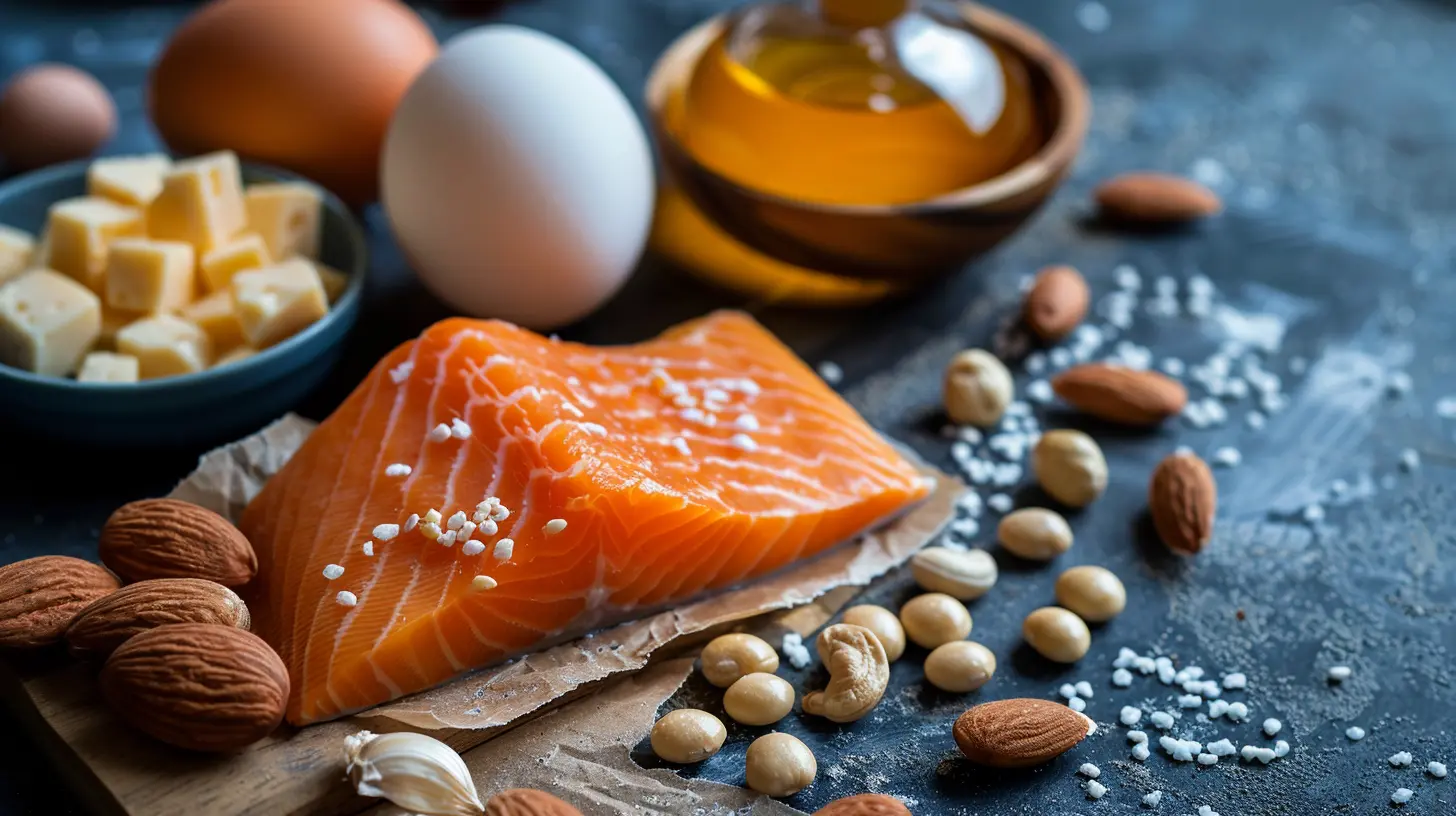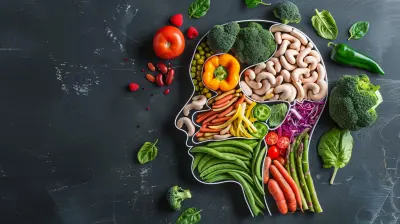Can Cholesterol Levels Fluctuate? Here’s What You Need to Know
4 September 2025
Let’s get real for a moment—cholesterol has a bad reputation. The word alone can make you think of clogged arteries, heart attacks, and your doctor giving you the side-eye over your latest blood test results. But here’s the thing: cholesterol isn’t always the villain of the story, and yes, it can actually fluctuate more than you might think.
Wait, what? Cholesterol levels can change like your mood on a Monday morning? Absolutely.
In this straight-talking deep dive, we’ll break down how cholesterol works, why your levels might zig-zag, and what it actually means for your health. Spoiler alert: it’s not always bad news.

What the Heck Is Cholesterol, Anyway?
Before we get into the nitty-gritty of fluctuations, let’s quickly recap what cholesterol even is. It’s a waxy, fat-like substance that your body needs. Yep, you heard that right.Cholesterol helps build cells, makes hormones like estrogen and testosterone, and even helps your body digest fatty foods. Your liver makes all the cholesterol you’ll ever need, but you also get extra from animal products—think eggs, cheese, and meat.
There are two main players:
- LDL (Low-Density Lipoprotein) – aka “bad cholesterol.” Too much of this can clog your arteries.
- HDL (High-Density Lipoprotein) – aka “good cholesterol.” This cleans up excess cholesterol and brings it back to the liver for disposal.
So, when people talk about cholesterol levels, they usually mean the balance between these two—and yes, that balance can bob and weave over time.

Can Cholesterol Levels Fluctuate?
In short: heck yes, they can. And they do—more often than you think.Your cholesterol levels aren’t set in stone. They can shift thanks to a bunch of factors, from what you had for dinner last night to your stress levels, even the time of year. Wild, right?
Let’s break down the chaos a bit.

What Causes Cholesterol to Fluctuate?
1. Diet: Feast or Fluctuate
This one’s a no-brainer. Eat a diet high in saturated fats, trans fats, or cholesterol-heavy foods and your LDL (bad cholesterol) can shoot up faster than a double espresso’s effect on your heart rate. Think fast food, fried snacks, baked goods—basically, the stuff we know isn’t doing us any favors.On the flip side, clean up your plate with more fiber, fruits, veggies, lean proteins, and healthy fats (like avocados and nuts), and you might see your HDL go up and LDL take a dive.
But here’s the catch: one cheeseburger won’t wreck your numbers overnight. It’s the long-term patterns that matter. That said, if you eat like a saint all week and binge on Saturday, your labs might reflect the chaos.
2. Physical Activity: Move It or Lose It (Balance)
Regular exercise can help raise HDL (the good kind) and lower LDL. But skip gym day for a few weeks (or, let’s be real, months), and your levels can creep in the wrong direction.Even a brisk 30-minute walk a few times a week can help tip the scale toward healthier cholesterol. Consistency is key, folks.
3. Weight Swings: Your Scale Matters
Carrying around extra weight—especially around the midsection—can drive LDL up and HDL down. Lose some of that belly fat, and you might see the opposite happen.But yo-yo dieting? That’s a whole different beast. Extreme weight loss followed by rapid gain can send your cholesterol levels into a rollercoaster loop. Your body loves stability, not drama.
4. Medications: The Unsuspected Influencers
Certain medications can influence cholesterol. Think steroids, birth control pills, diuretics, or even beta-blockers. They might mess with your liver’s cholesterol production or how your body uses fats.Oh, and if you’re taking statins to lower cholesterol, skipping doses or halting suddenly (please, don’t do that without calling your doc) could also spike your levels.
5. Stress: The Silent Saboteur
Ever heard the phrase “stress will kill ya”? Well, in this case, it might raise your cholesterol, too.When you’re under chronic stress, your body releases cortisol—and that hormone can trigger a domino effect of unhealthy habits: more greasy foods, less exercise, poor sleep, and higher alcohol intake. It’s the perfect storm for cholesterol chaos.
6. Alcohol & Smoking: Party Now, Pay Later
Moderate alcohol might boost HDL a little—but heavy drinking? That’s the fast lane to liver problems and a cholesterol spike.And smoking? Oh man. It destroys HDL and damages your blood vessels. Quit smoking, and your cholesterol might actually start behaving a little better.
7. Hormonal Changes: Blame It on Biology
Ladies, listen up. Estrogen impacts cholesterol levels, which means menopause (when estrogen drops) can lead to higher LDL and lower HDL. Men aren’t off the hook either—testosterone dips can play a role too.8. Seasonal Changes: Yep, Even the Weather's Involved
Believe it or not, research shows cholesterol levels can vary with the seasons. People tend to have higher cholesterol in winter—possibly due to heavier eating, less sunshine (and vitamin D), and fewer outdoor activities. So if your January test looks worse than July’s, you're not imagining things.
Can Day-to-Day Changes Affect Your Cholesterol Test?
Oh yeah.Let’s be honest—most of us only think about cholesterol when we’re fasting for that one dreaded blood draw. But here’s the kicker: even that single test can be influenced by what you did (or didn’t do) 24 to 48 hours before.
Had a greasy pizza binge the night before? Slept poorly? Super anxious about the test itself? All of that stuff can tweak the readings.
That’s why doctors often recommend taking multiple tests over time before diagnosing high cholesterol. Because one test? It's just a snapshot, not the whole movie.
How Often Should You Check Your Cholesterol?
For most healthy adults, every 4 to 6 years is the norm. But if you’ve got risk factors—like diabetes, high blood pressure, family history, or you're over 40—you might want to check yearly or biannually.The key is consistency. Try to test under similar conditions each time (fasting, at the same lab if you can, etc.) to get more accurate comparisons.
When Should You Worry About Fluctuations?
Okay, so cholesterol levels can bounce around. No big deal, right?Well… sometimes it is a big deal.
If your numbers are swinging wildly between tests, or if your LDL is consistently high and HDL stays low, it's time to dig deeper. High cholesterol = higher risk for heart attacks, strokes, and other mess-you-up cardiovascular problems.
But don’t panic. Talk with your doc, look at the trends, and zoom out before you make any drastic changes.
How to Keep Your Cholesterol in Check
Let’s cut to the chase. If you want to keep your cholesterol from acting like a hormonal teenager, here are some straight-up, no-BS tips:- Eat real food – limit saturated fat, avoid trans fats entirely, and load up on fiber.
- Get moving – 30 minutes of moderate exercise, 5 days a week.
- Ditch the smokes – Tobacco messes with your arteries and HDL levels.
- Chill out – Get your stress under control with meditation, therapy, or just turning off news alerts.
- Limit alcohol – One drink a day for women, two for men. That’s the max.
- Get regular labs – Know your numbers and track the trends.
- Take meds if needed – And take them consistently.
Final Thoughts: Don’t Freak Out, but Pay Attention
Yes, cholesterol levels can and do fluctuate. Your body isn’t a robot—it reacts to your habits, hormones, the weather, and just about everything else happening in your life.The goal isn’t perfect numbers 24/7. It’s long-term heart health.
So monitor your lifestyle, check your cholesterol regularly, and don't let one “bad” test send you into a tailspin. Use the data to course-correct and live better—not stress yourself into another health issue.
And hey, if you made it this far, you’re already doing more than most people. You’ve got this.
all images in this post were generated using AI tools
Category:
CholesterolAuthor:

Jackson Mahoney
Discussion
rate this article
1 comments
Cassian McCoy
In the dance of health, cholesterol sways, Rising and falling through life's fleeting days. Tune in to your heart, embrace the flow, For balance is key, let knowledge grow.
September 19, 2025 at 5:02 PM

Jackson Mahoney
Thank you for your poetic insight! Indeed, understanding and managing cholesterol levels is crucial for heart health and overall well-being.


